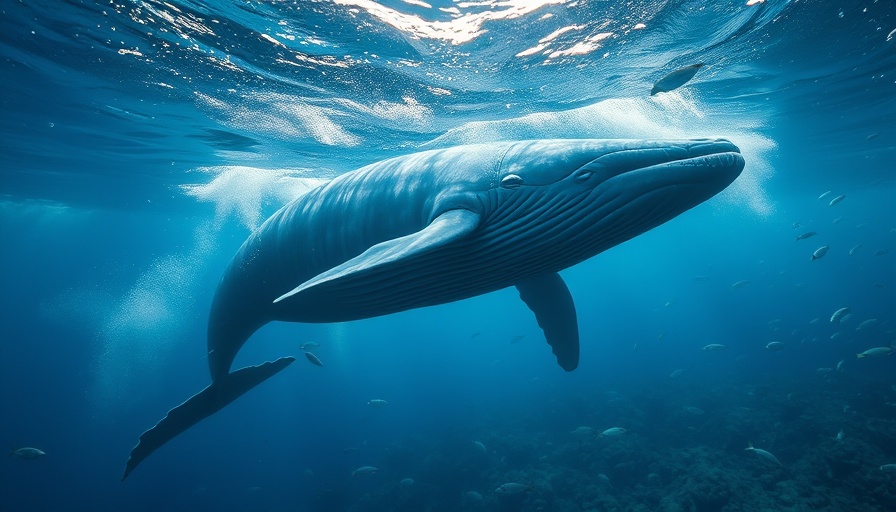
Whales: More Than Just Giants of the Sea
Recent research uncovering the ecological role of whales reveals that these majestic giants are not merely top predators but also pivotal players in nutrient distribution across the ocean. While many understand that whales contribute to ocean health predominantly through their feces, emerging studies show that their urine is also vital for delivering critical nutrients. This discovery highlights the importance of whales in sustaining marine ecosystems, particularly in nutrient-poor tropical waters.
The Great Whale Nutrient Transport
The term 'great whale conveyor belt' aptly describes the mechanisms by which these marine mammals move essential nutrients across vast oceanic distances. Experts from the University of Vermont report that great whales, including humpback, gray, and right whales, transport an estimated 4,000 tons of nitrogen each year while migrating thousands of miles from their feeding grounds in colder, nutrient-rich waters to warmer coastal breeding areas.
This influx of nitrogen, predominantly excreted via urine, is crucial in regions that typically have lower nitrogen concentrations, such as the coral reef ecosystems. Interestingly, in places like Hawaii, whale nutrient contributions can surpass inputs from local sources, indicating the whales’ significant ecological impact.
Linking Local and Global Health
Many coastal areas exhibit clear waters, a sign of nitrogen-deficiency that hampers the growth of phytoplankton, the foundation of the marine food web. Joe Roman, a biologist leading the research, emphasizes that the transportation of nitrogen by migrating whales is essential for promoting the growth of these microscopic algae, which serve as food for everything from small fish to large predators like sharks.
Ocean Health and Whale Conservation
Conservation efforts for whale populations have never been more critical. The historical impact of commercial whaling has severely depleted whale numbers and, consequently, their ecosystem roles. It is estimated that before whaling reduced their populations, whales might have contributed up to three times more nutrients to the ocean than they do today. This illustrates the pressing need for conservation initiatives aimed at protecting and restoring whale populations, which are essential for maintaining healthy ocean ecosystems.
Understanding Nutrient Cycling in the Ecosystem
Whales play a role similar to that of seabirds, which actively transport nutrients from the ocean to the land via their droppings. Such nutrient cycling is integral to ecosystem health, ensuring the proliferation of various species. While previous studies have focused primarily on the contributions of whale feces to ocean productivity, the recent emphasis on urine provides a more comprehensive understanding of how large animals like whales function as vital nutrient pumps. Even skin sloughing and carcasses contribute to nutrient dispersal, further enhancing their role.
Implications of Climate Change and Future Insights
This research also opens the door to future studies on how climate change may affect whale populations and their associated nutrient transport. As ocean temperatures rise and marine ecosystems undergo significant alterations, understanding the role of whales in nutrient dynamics will be essential for predicting changes in ocean health and productivity.
In summary, whales should be recognized not just for their size but for their extraordinary contributions to marine ecosystems through nutrient transport. Their role as a natural conduit of nutrients across oceans emphasizes the need for dedicated conservation efforts to protect these magnificent creatures and, by extension, the health of our oceans.
To support the preservation efforts and further understand the intricate dynamics of our oceans, it's crucial to stay informed and engaged. Taking action through advocacy and education can make a meaningful difference in the fight to protect whale populations and the ecological balance they help maintain.
 Add Element
Add Element  Add Row
Add Row 



 Add Row
Add Row  Add
Add 


Write A Comment